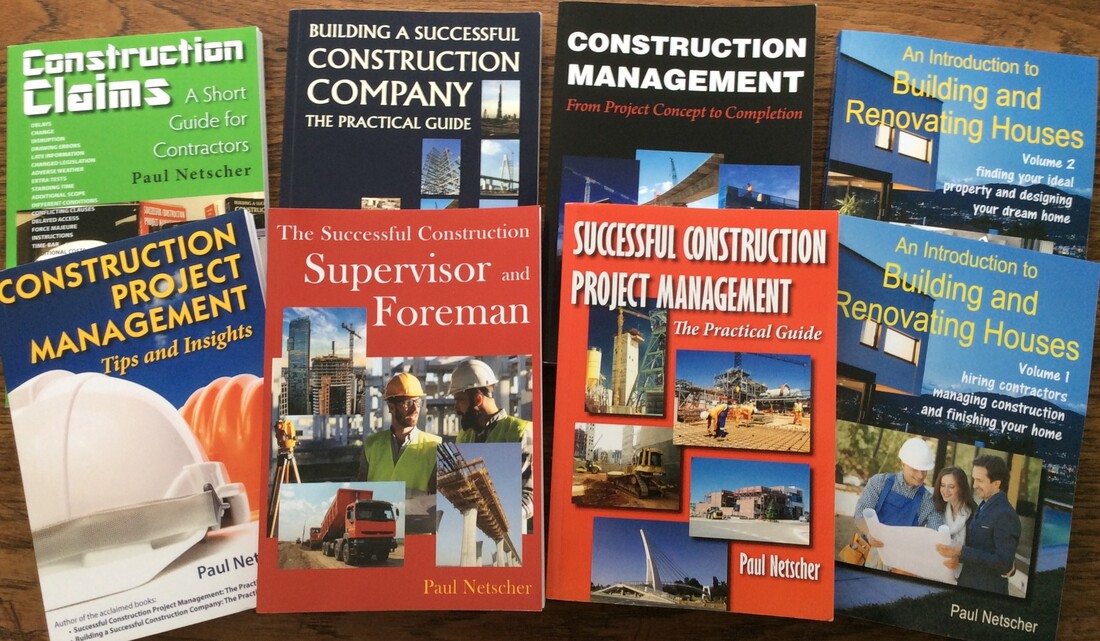Why construction projects are delayed and when contractors can claim for these delays.Often construction projects are delayed. Sometimes the delay is due to the contractor – for instance poor planning, insufficient resources, or materials arriving late. Often the delay is due to weather which might include rain, wind and extreme temperatures, but weather events are normal and should be accounted for by the contractor. On occasion the delay is due to reasons that were specified in the contract document – such as the contractor having to work in and around the customer’s activities. Many times in this case the contractor has to recover the lost time at their own expense, as they either caused the delay themselves or they should have foreseen or known about the potential delays when they prepared and agreed to the project’s construction schedule. an introduction to construction variation claims video 8 - when you can not claim extension of time However, delays often happen for reasons outside the control of the contractor, that couldn’t have been reasonably anticipated or allowed for by the contractor. In these cases, and depending on the terms of the project’s contract, the contractor will need to claim an extension of time so that the project’s completion date is extended. Delays invariably result in the contractor incurring additional costs as they remain longer on the project. Finishing a project late may entitle the customer to claim damages from the contractor. Furthermore, finishing a project late without a valid, approved reason can be damaging to the contractor’s reputation. Understanding the real cost of delays on your construction project It’s therefore essential that contractors understand some of the reasons and causes that give them the right to claim an extension of time. An extension of time means that the project’s completion date is extended by the number of days approved in the claim. The contractor then can claim the additional costs associated with this longer approved construction period. Reasons for extension of time on construction projectsSome causes of construction project delays that entitle the contractor to submit an extension of time include: 1. The customer (or their designated representative) issues an instruction to stop work for reasons unrelated to the contractor. The Instruction may be due to the customer changing their design, or to allow the customer’s work, or the work of their contractors, to proceed. However, in some cases customers may issue an Instruction to the contractor to stop work because of a fault by the contractor such as; unsafe working conditions, poor quality work, or failure to obtain design approvals or the required construction permits and in these cases the contractor can’t claim an extension of time unless they can prove that the customer (or their representative) was wrong to stop the work and that the contractor was in fact compliant. 2. The customer provides construction information late. I’m sure we’ve all been on projects where the customer’s drawings have been issued late. If there’s an approved construction schedule the customer should know when information is required and there’s no excuse for it being issued late. An introduction to construction variation claims for construction project managers video 9 - What information and by when? 3. Late access. Often contractors are dependent on the customer providing access to the work area in accordance with the agreed construction schedule. Care should be taken when accepting access to a work area that the area is safe and that the area given to the contractor meets the specified dimensions and heights as laid out in the contract document. An introduction to construction variation claims for project managers video 7. What is access? 4. Changes in specification. This is something that contractors don’t always detect until it’s too late. Change in specifications often increases the price of items, but the items with the new specifications could also have longer manufacturing times. In some cases specifications are changed after items have been ordered which means that the original order has to be cancelled and new orders placed which can significantly delay projects. 5. Scope increases. Many projects increase in scope and contractors need to continually compare the actual scope with the scope they priced. Increased scope usually means we need more time to complete the project, or additional resources to complete it in the original time frame. 6. The customer’s activities cause delays. Sometimes the contract document includes customer activities and constraints that the contractor has to work around and accept. In these cases the construction schedule should take these impacts into account. However, often during the course of construction the customer introduces new constraints. Is your client delaying your construction project? 7. Additional quality tests and inspections. The customer’s quality managers, at times, can introduce additional tests or quality inspections which weren’t mentioned in the contract documents. These can add additional costs and cause delays. Some customers add in additional ‘hold’ or inspection points, or require 24 hour, or even 48 hour, notice periods for inspection which delay the project. 8. Late drawing or design approval. The construction schedule and contract document should stipulate the maximum turn around time for the customer and their representatives to approve the contractor’s drawings and designs. Some customers exceed the times specified and cause delays to the project. 9. The customer and their team don’t immediately respond to requests for information (RFI’s) and drawing queries. Unfortunately I’m sure we’ve all received drawings with missing or conflicting information. On occasion querying and receiving the corrected information can be a tedious and time consuming process which delays the project. 10. Customers’ not providing facilities and utilities in the required quantities and in the time they were obligated to supply them. 11. The customer’s other contractors impact and delay the contractor’s work. They may restrict access to the contractor’s work areas, damage completed work or hold-up the contractor’s work where they are required to interface with them. Even work outside the immediate work area could dramatically impact the contractor’s work blocking roads and access or interrupting the supply of water and power. 12. The customer revises drawings which require the contractor to redo work which is already completed, or the contractor has to re-order materials or equipment, thus delaying the project while the items are procured. 13. The customer changes the sequencing in the schedule because they want some sections of the project earlier and others later. 14. Unforeseen project site conditions. These could include:
15. Extreme weather events, such as one in fifty year floods and catastrophic storms. The claimable weather conditions could be occasions when the weather is more severe than the average climate for the region. More rainfall, more snow, more windy days, more violent winds, or more extreme temperatures during construction than the average (for the same months) for the area where the project is. 16. Items that the contractor specifically excluded in their bid submission and which were included as exclusions in the contract document. 17. Change in legislation. This could include the country declaring a special holiday. Changed legislation could also result in a change in the building materials which might not, for instance, comply with new fire legislation. 18. National strikes, work stoppages or a disruption which causes the contractor’s employees to stop working, or impacts the supply of critical materials, such as fuel. This could also include disruption by the customer’s employees which interrupts progress on the construction project. 19. Customer supplied equipment or materials arriving late, being damaged when they arrive on the project, or not being fit for purpose. 20. Errors on customer issued drawings which either result in work being redone, or causes delays while clashes, missing information and problems are resolved. 21. Drawing coordination problems. Frequently Architect’s and Engineer’s drawings have conflicting information, or the mechanical, electrical and plumbing drawings have clashing services or utilities. Sometimes the designers haven’t allowed for the utility services, so holes have to be cored through concrete slabs or broken through walls. All of this rework and these clashes create delays and additional costs. 22. The customer failing to obtain statutory permits which prevents the contractor from carrying out work. requirements of a Project schedule Ensure your delay claims are acceptedIt’s essential that contractors understand the project contract document and are aware of the delays they are entitled to claim. It’s imperative that contractors submit their extension of time claims and delay claims as soon as they became aware of them, and certainly within the time period specified in the contract document. Late claims can be time-barred which will provide reason for the customer to reject the claim. Documents That Will Make Your Construction Variation Claim Successful Of course, the claim must be presented in a logical format outlying the reasons for the claim as well as mitigating actions taken by the contractor to prevent the claim. The claim should include all the supporting documentation and clearly show the impact of the delay to the critical path of the approved construction schedule. How to Make your Construction Change Order Claims Successful This article was first published on the ClockShark website - Get The Industries' #1 Time-Tracking AppRunning a field service or construction business takes coordination and a great team. With ClockShark you get the industries' #1 timesheet ap Learn more about Construction Project Management"Thank you for publishing your Guides . Read both of them and they have been a fresh welcomed change in the way I look at my projects on a daily and 3 month ahead look. I just wish all our clients can read it as well." To read more about the author’s books and find out where you can purchase them visit the pages on this website by clicking the links below:
'Successful Construction Project Management: The Practical Guide' 'Building a Successful Construction Company: The Practical Guide' 'Construction Claims: A Short Guide for Contractors' 'Construction Book reviews' To read more about the author visit the page 'Paul Netscher' Want to contact Paul Netscher please enter your details on 'Contacts' Find out how Paul Netscher can help you Order your books from Amazon Order your books from Amazon UK © 2016 This article is not to be reproduced for commercial purposes without written permission from the author. construction management construction project management
0 Comments
Leave a Reply. |
Archives
June 2024
Note: We welcome genuine comments, especially comments that add additional information to the subject matter in the article. We however reserve the right to remove inappropriate comments, which includes comments that have nothing to do with the subject, comments that include inappropriate language, and comments that are an advertisement for a product or company, or which include an advertising link. Comments must be in English. We will not enter into discussion on why a particular comment was removed.
CategoriesCopyright 2016 - The attached articles cannot be reproduced for commercial purposes without the consent of the author.
The opinions expressed in the attached articles are those of the writer. It should be noted that projects are varied and different laws and restrictions apply which depend on the location of the contractor and the project. It's important that the reader uses the supplied information taking cognisance of their particular circumstances. The writer assumes no responsibility or liability for any loss of any kind arising from the reader using the information or advice contained herein. "I have what I consider some of the best books on construction management."
Books are available from: Amazon.com Amazon.co.uk takealot.com kalahari.com Amazon.in Amazon.de Amazon.fr Amazon.it Amazon.com.au Powell's Fishpond uread bokus Amazon.ca Amazon.es Other retail stores Available in paperback or on Kindle "28 YEARS OF CONSTRUCTION PROJECT MANAGEMENT EXPERIENCE, DEVELOPING SUCCESSFUL CONSTRUCTION PROJECT MANAGERS AND BUILDING SUCCESSFUL CONSTRUCTION COMPANIES"
|





 RSS Feed
RSS Feed




